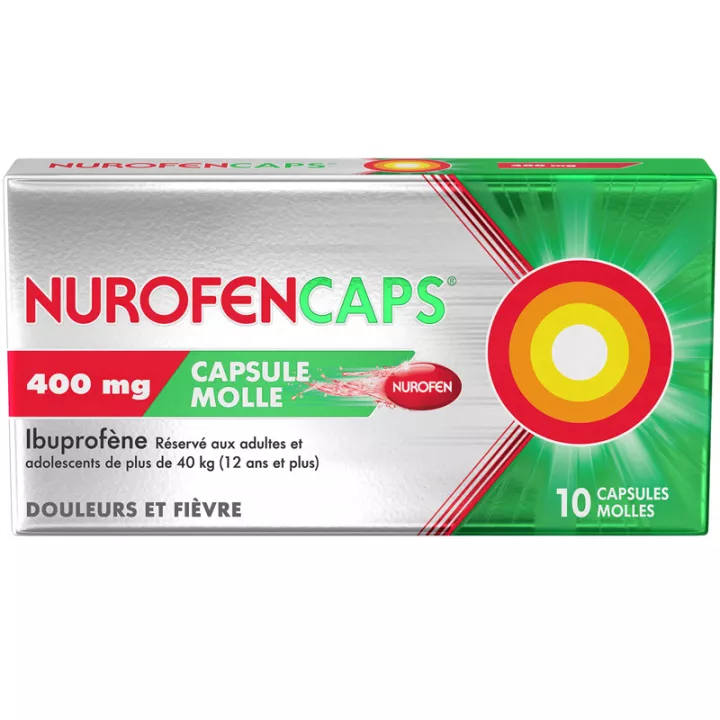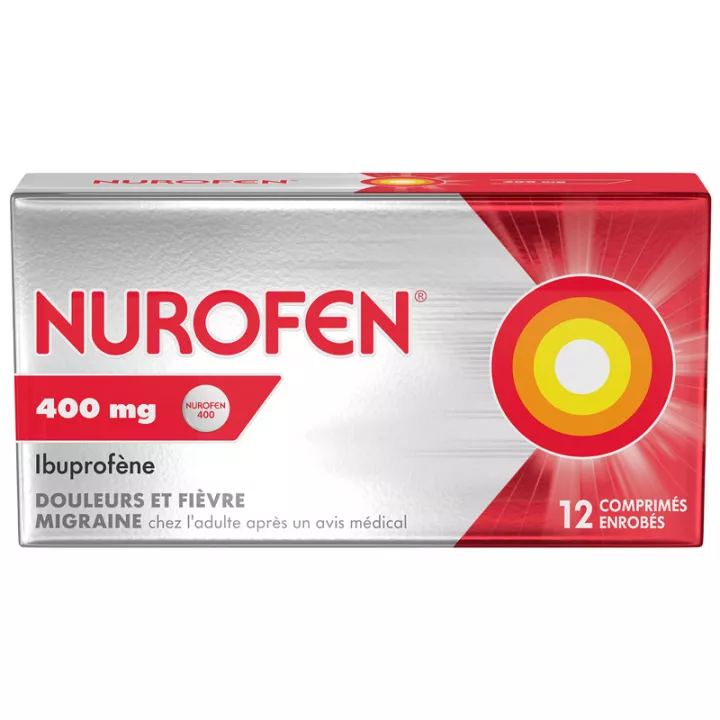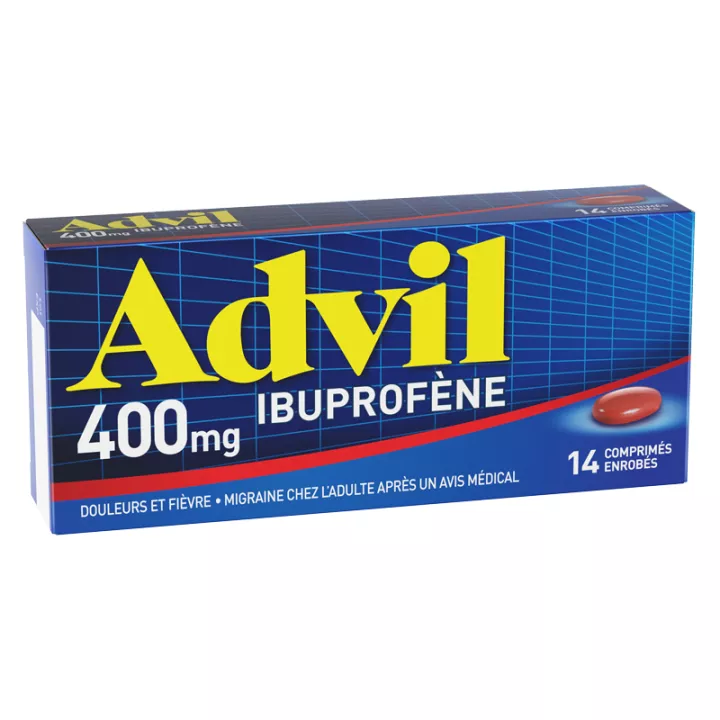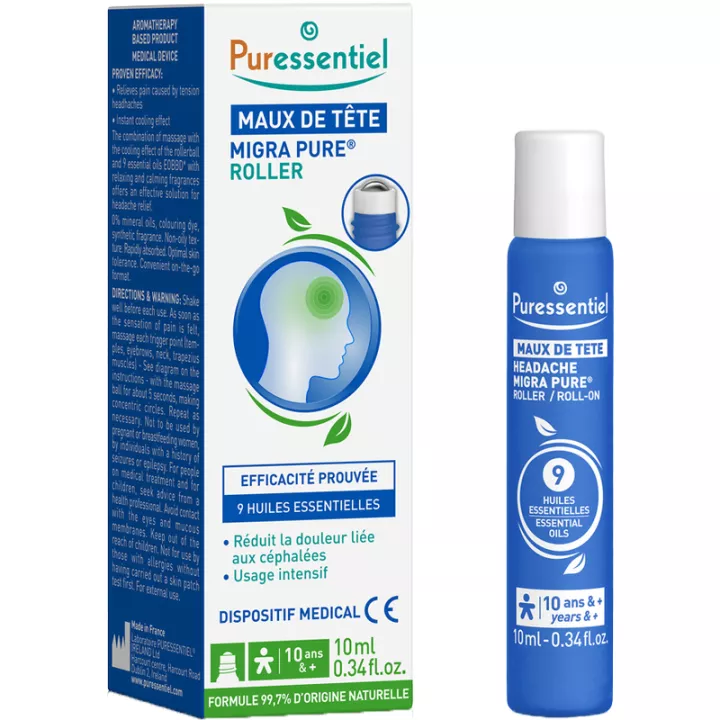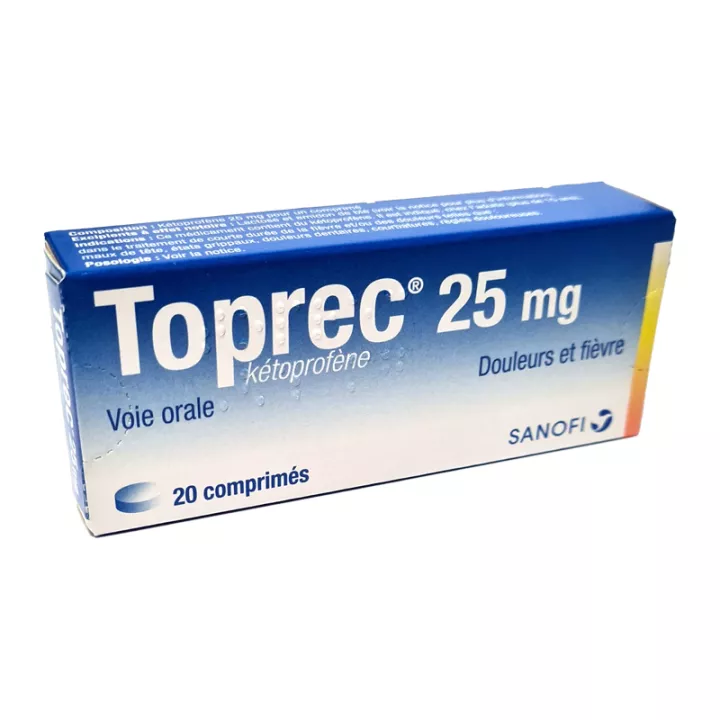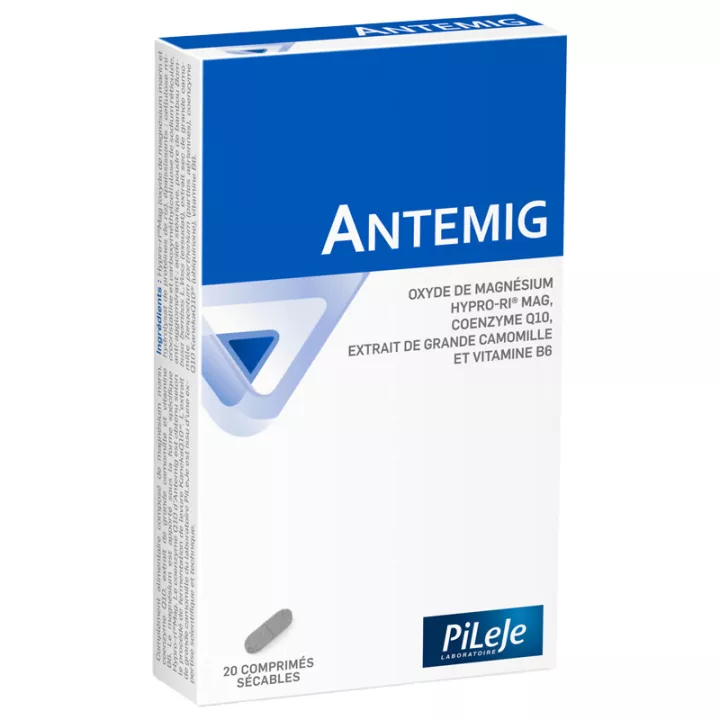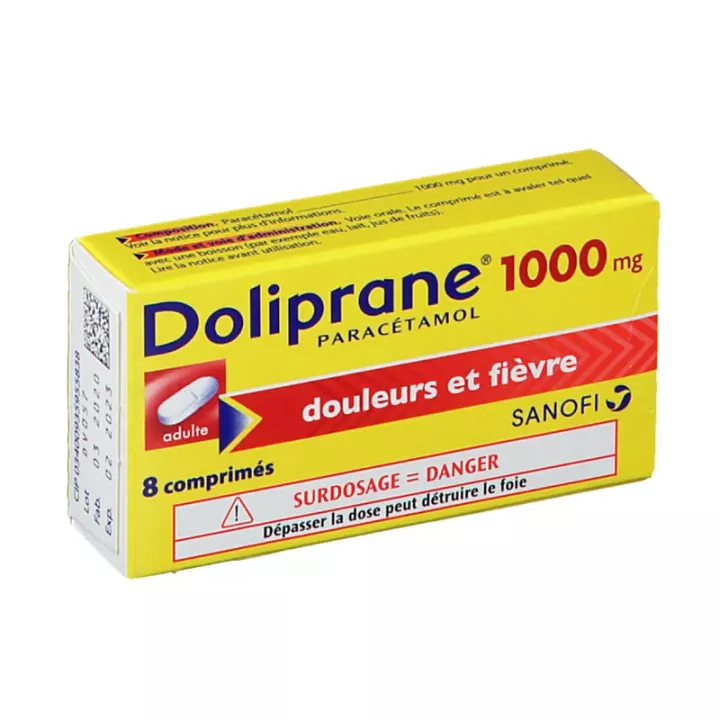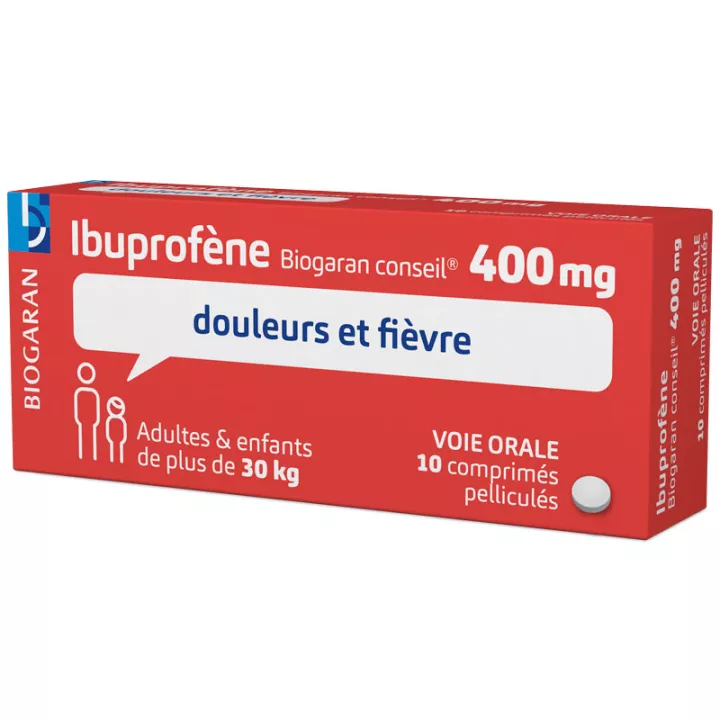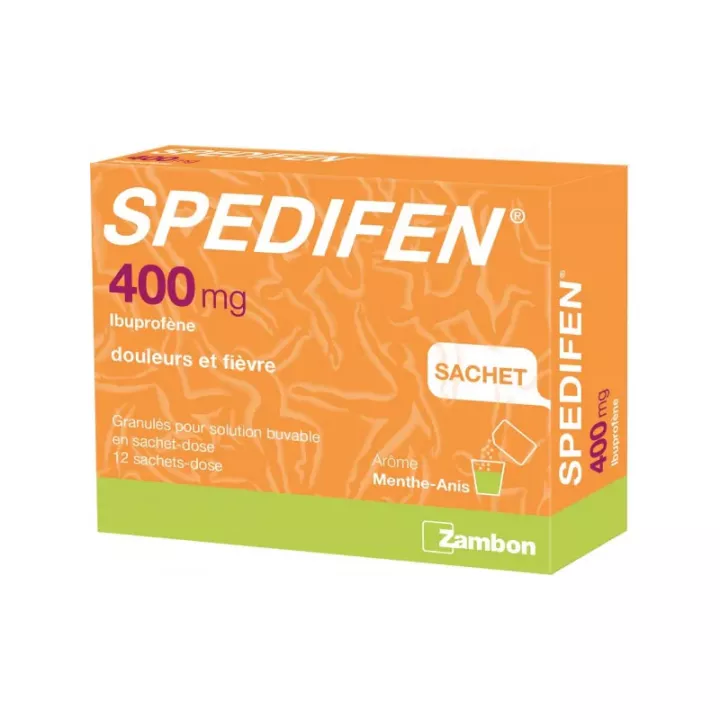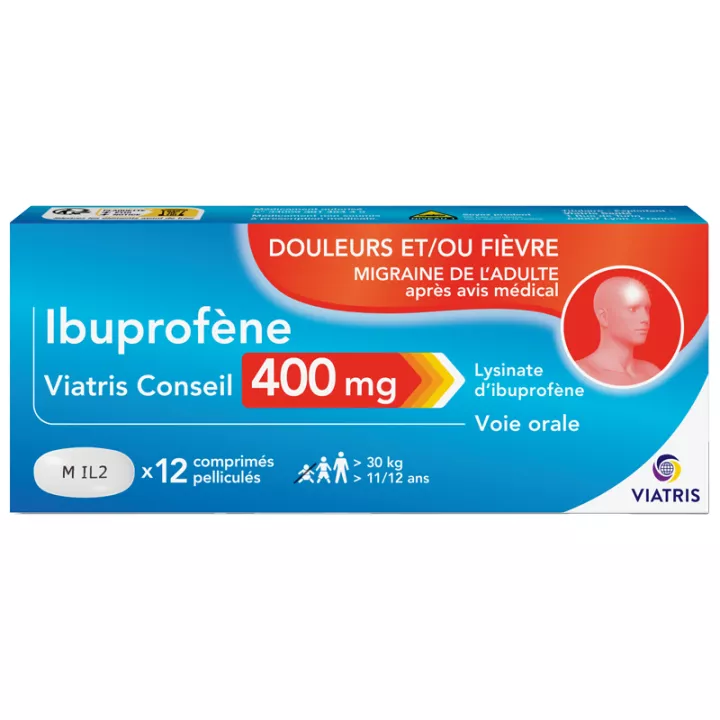NOTICE
ANSM - Updated on: 24/07/2017
Name of the medicinal product
SPEDIFEN 200 mg tablet
Ibuprofen
framed
Please read this leaflet carefully before you start using this medicine because it contains important information for you.
You should always use this medication exactly as prescribed in this leaflet or by your doctor or pharmacist.
· Keep this leaflet. You might need to read it again.
· Ask your pharmacist for advice or information.
· If you experience any side effects, talk to your doctor or pharmacist. This also applies to any side effects not mentioned in this leaflet. See section 4.
· You should contact your doctor if you experience no improvement or if you feel less well after 3 days in case of fever or 5 days in case of pain.
What is in this leaflet?
1. What is SPEDIFEN 200 mg tablets and when is it used?
2. What should I tell you before taking SPEDIFEN 200 mg tablet?
3. How to take SPEDIFEN 200 mg tablet?
4. What are the possible side effects?
5. How to store SPEDIFEN 200 mg tablets?
6. Package contents and other information.
1. WHAT IS SPEDIFEN 200 mg tablet AND WHAT IT IS USED FOR?
Pharmacotherapeutic group - ATC code: OTHER ANALGESICS AND ANTIPYRETICS - N02B
This medicine contains a non-steroidal anti-inflammatory drug: ibuprofen. In adults and children over 20 kg (about 6 years), it is indicated in the short-term treatment of fever and / or pain such as headache, flu-like conditions, dental pain, aches and pains.
2. BEFORE YOU TAKE SPEDIFEN 200 mg tablet?
Do not take SPEDIFEN 200 mg tablets:
· after 5 months of pregnancy (24 weeks of amenorrhea),
· if you have a history of wheezing, asthma, runny nose, allergy (swelling or urticaria) after using aspirin or other similar painkillers / anti-inflammatories (NSAIDs),
· if you are allergic to ibuprofen or any of the other ingredients of this medication mentioned in section 6,
· if you have a history of gastrointestinal bleeding or ulcers associated with previous NSAID treatments,
· if you have an ulcer or bleeding from the stomach or bowel in progress or recurring,
· if you have gastrointestinal hemorrhage, cerebral hemorrhage or other ongoing hemorrhage, such as ulcerative colitis (chronic inflammation of the intestine),
· if you have severe liver disease,
· if you have a serious kidney disease,
· if you have a predisposition to bleeding,
· if you have a serious heart disease,
· if you have systemic lupus erythematosus,
· child under 6 years old because it can swallow and choke.
Warnings and Precautions
Talk to your doctor or pharmacist before using SPEDIFEN 200 mg tablet.
In high doses, greater than 1200 mg / day, this drug has anti-inflammatory properties and can cause serious disadvantages that are observed with non-steroidal anti-inflammatory drugs.
Anti-inflammatory / analgesic drugs such as ibuprofen are likely to be associated with a slightly increased risk of heart attack or stroke, especially when used at high doses.
Do not exceed recommended dosage or treatment time.
Talk with your doctor or pharmacist before taking SPEDIFEN 200 mg tablet if you have:
- heart problems, angina pectoris (chest pain) or if you have had a heart attack, surgical bypass surgery, peripheral arterial disease (poor circulation in the legs or feet due to narrowed or blocked arteries ) or any type of stroke (including "mini-strokes" or transient ischemic attacks (TIAs))
- high blood pressure, diabetes, high cholesterol, a family history of heart disease or stroke, or if you are a smoker.
If you are a woman, SPEDIFEN 200 mg tablet can alter your fertility. This effect is reversible upon discontinuation of treatment . Its use is not recommended in women who wish to conceive a child. In women with reproductive difficulties or in whom breast function tests are ongoing, please tell your doctor or pharmacist before taking SPEDIFEN 200 mg tablet.
Elderly patients have a higher risk of adverse effects, particularly for gastrointestinal haemorrhage, ulcers and perforations. Renal, hepatic and cardiac functions should be closely monitored. The dosage should be as low as possible for the shortest time needed to relieve symptoms.
NSAIDs such as ibuprofen may mask and / or aggravate the symptoms of an infection.
Do not exceed the recommended dose or treatment time (3 days for fever and 5 days for pain).
The regular and prolonged use of analgesics can lead to headaches and kidney damage. If this happens or is suspected, stop treatment and contact a doctor.
Special attention should be paid to ibuprofen if you are severely dehydrated.
Caution is advised if you have collagen / connective tissue diseases other than systemic lupus erythematosus (see section "Do not take SPEDIFEN 200 mg tablets").
This medicine contains sodium. This medicine contains 41 mg sodium per tablet. To be taken into account in patients controlling their sodium dietary intake.
BEFORE YOU USE THIS MEDICINE, CONSULT YOUR DOCTOR IN CASE:
· a history of asthma associated with chronic rhinitis, chronic sinusitis or polyps in the nose. Administration of this specialty may lead to an asthma attack, especially in certain individuals who are allergic to acetylsalicylic acid (aspirin) or to a non-steroidal anti-inflammatory drug ( see section "Do not take SPEDIFEN 200 mg tablet" ),
· coagulation disorders, and anticoagulant therapy. This medication may cause severe gastrointestinal symptoms,
· digestive antecedents (hiatal hernia, digestive hemorrhage, ulcer of the stomach or of the old duodenum),
· heart disease, liver or kidney disease,
· of varicella. This medication is not recommended because of exceptional severe infections of the skin,
· concomitant treatment with other drugs that increase the risk of peptic ulcer or haemorrhage, for example, oral corticosteroids, antidepressants (SSRIs, ie Selective Serotonin Reuptake Inhibitors ), medicines preventing the formation of blood clots such as aspirin or anticoagulants such as warfarin. If you are in any of these conditions, talk to your doctor before taking SPEDIFEN 200 mg tablet ( see section "Other medicines and SPEDIFEN 200 mg tablet" ),
· concomitant therapy with methotrexate at doses greater than 20 mg per week or with pemetrexed ( see section "Other medicines and SPEDIFEN 200 mg tablet" ).
DURING TREATMENT, IN CASE OF:
· of vision problems, PREVENT YOUR DOCTOR,
· gastrointestinal haemorrhage (discharge from the mouth or stool, stool coloration in black), STOP TREATMENT AND IMMEDIATELY CONTACT AN EMERGENCY MEDICAL OR MEDICAL SERVICE,
· of appearances of cutaneous or mucosal signs that resemble a burn (redness with bubbles or blisters, ulcerations), STOP THE TREATMENT AND CONTACT IMMEDIATELY A DOCTOR OR AN EMERGENCY MEDICAL SERVICE,
· of allergy-related signs including asthma attack or sudden swelling of the face and neck ( see section "What are the possible side effects?" ), STOP TREATMENT AND CONTACT IMMEDIATELY A DOCTOR OR A MEDICAL SERVICE EMERGENCY.
This medicine contains a non-steroidal anti-inflammatory drug: ibuprofen. You should not take other medicines containing non-steroidal anti-inflammatory drugs (including selective cyclooxygenase 2 inhibitors) and / or acetylsalicylic acid (aspirin) at the same time as this medication. Read carefully the instructions for other medicines you are taking to ensure that there are no nonsteroidal anti-inflammatory drugs and / or acetylsalicylic acid (aspirin). |
Adolescents (age ≥ 12 years and <18 years
There is a risk of kidney damage in dehydrated children / adolescents.
Other medicines and SPEDIFEN 200 mg tablet
Inform your doctor or pharmacist if you are taking, have recently taken or may take any other medicines. SPEDIFEN 200 mg tablet is likely to affect or be affected by certain other medications. For example :
· aspirin (acetylsalicylic acid) or other non-steroidal anti-inflammatory drugs
· corticosteroids
· anti-coagulant drugs (ie, which fluidize the blood / prevent the appearance of clots such as aspirin / acetylsalicylic acid, warfarin, ticlopidine)
· lithium
· methotrexate
· medicines that reduce high blood pressure (angiotensin-converting enzyme (ACE) inhibitors such as captopril, beta-blockers such as atenolol, angiotensin-II receptor antagonists such as losartan)
· some antidepressants (selective serotonin reuptake inhibitors)
· pemetrexed
· ciclosporin, tacrolimus
· zidovudine (treatment for HIV infection or acquired immunodeficiency syndrome)
· hypoglycaemic agents (treatment for diabetes including insulin)
· voriconazole or fluconazole (anti-mycotic treatment)
· mifepristone (abortion pill)
· antibiotics of the quinolone family
· phytotherapy products containing gingko biloba
· antibiotics aminoglycosides
Some other medicines are likely to affect or be affected by treatment with SPEDIFEN 200 mg tablet. Therefore, you should always seek advice from your doctor or pharmacist before using SPEDIFEN 200 mg tablet along with other medicines.
This medication is likely to affect the results of diagnostic tests (bleeding time, blood sugar, etc.). If in doubt, ask your doctor for advice.
SPEDIFEN 200 mg, tablet with food and beverages
Not applicable.
Pregnancy, breast-feeding and fertility
If you are pregnant or breastfeeding, think you may be pregnant or plan a pregnancy, ask your doctor or pharmacist for advice before taking this medicine.
This medication should not be taken during the first 5 months of pregnancy except on medical advice in case of absolute necessity, in brief use.
Do not take this medication in any way after 5 months of pregnancy, as its effects on your child can have serious consequences, especially on a cardiopulmonary and renal plan, even with a single dose.
If you are taking this medication when you are more than five months pregnant, please speak to your obstetrician gynecologist for appropriate monitoring.
Although the product passes into breast milk, no effect is reported on the newborn / suckling infant if ibuprofen is administered at therapeutic doses. Interruption of breastfeeding is generally not necessary in the case of short-term treatment at the recommended dose.
Ibuprofen belongs to the class of medicines that can alter female fertility. However, this effect is reversible upon discontinuation of treatment.
Avoid taking this medication if you are pregnant.
Driving and using machines
In rare cases, taking this medicine may cause dizziness and blurred vision.
In the case of single or short-acting treatment, this medication usually does not require any special precautions.
SPEDIFEN 200 mg tablet contains sodium.
3. HOW TO TAKE SPEDIFEN 200 mg tablet?
The occurrence of adverse reactions can be minimized by using the lowest possible dose for the shortest duration necessary to alleviate the symptoms.
Always take this medication exactly as prescribed in this leaflet or as directed by your doctor or pharmacist. Check with your doctor or pharmacist if in doubt.
ADULT TO ADULT AND CHILD FROM 20 KG (approx. 6 years).
Painful and / or febrile conditions
In children, the usual dosage is 20 to 30 mg / kg / day in 3 doses per day (not to exceed 30 mg / kg / day).
In children from 20 to 30 kg (approximately 6 to 11 years): 1 tablet (200 mg), to be renewed if necessary after 6 hours. In all cases, do not exceed 3 tablets per day (600 mg).
In adults and children over 30 kg (approximately 11-12 years): 1 to 2 tablets (200 mg to 400 mg), to be renewed if necessary after 6 hours. In all cases, do not exceed 6 tablets per day (1200 mg).
The elderly with an increased risk of adverse effects should use the lowest possible dose for the shortest time necessary to relieve symptoms.
Do not exceed the recommended doses or the duration of treatment (3 days in case of fever, 5 days in case of pain).
The maximum dosage is 6 tablets per day (1200 mg).
Oral use.
Swallow the tablet without chewing it with a large glass of water.
The tablets should be taken preferably during a meal.
Systematic catches help to avoid oscillations of pain or fever.
They should be spaced at least 6 hours.
The duration of use is limited to: · 3 days in case of fever, · 5 days in case of pain |
If the pain persists more than 5 days or the fever more than 3 days, or if they worsen or in the event of another disorder, inform your doctor.
If you feel that the effect of SPEDIFEN 200 mg tablet is too strong or too weak, talk to your doctor or pharmacist.
If you take more than SPEDIFEN 200 mg tablets you should:
Immediately consult your doctor or pharmacist.
sYMPTOMS
Symptoms of overdose usually include nausea, stomach pain, vomiting (bloody), diarrhea (bloody), dizziness, spasms, nystagmus (involuntary movement of both eyes) and diplopia (double vision), headaches and buzzing ear. In cases of severe poisoning, impaired renal function, hypotension, decreased consciousness and coma may also occur.
Support for overdose
Transfer to hospital: There is no specific antidote to ibuprofen. The stomach should be emptied as quickly as possible. The patient should, if possible, vomit. Activated charcoal to decrease the absorption of ibuprofen can be administered to the patient.
If you forget to take SPEDIFEN 200 mg tablet:
Do not take a double dose to make up for a missed dose.
If you stop taking SPEDIFEN 200 mg tablet:
Not applicable.
4. WHAT ARE POSSIBLE SIDE EFFECTS?
Like all medicines, this medicine may cause side effects, although not everybody gets them.
Medications such as SPEDIFEN 200 mg tablet may increase the risk of heart attack (myocardial infarction) or stroke.
In all cases listed below, stop treatment immediately and notify your doctor .
Side effects are assessed on the basis of the following frequencies:
· Very common: Touch more than 1 user out of 10
· Common: key 1 to 10 users out of 100
· Uncommon: affects 1 to 10 users in 1,000
· Rare: Touch 1 to 10 users out of 10,000
· Very rare: affects less than 1 user in 10,000
· Indeterminate: The frequency can not be estimated from the available data.
Very common
· Dyspepsia, diarrhea
Frequent
· Abdominal pain, nausea and gas (flatulence)
· Headache, feeling dizzy
· Skin disorder, skin rash
Rare
· Allergic reaction
· Asthma, aggravated asthma, wheezing, respiratory discomfort
· Gastrointestinal deep lesion or wound, vomiting, presence of blood in the stool, gastric mucosal inflammation, slight loss of blood in the stomach and / or intestine
· Subcutaneous or submucosal swelling (eg at the larynx level), haemorrhagic lesion of the skin, itching, urticaria
Rare
· Reduction in the number of platelets in the blood (hemorrhagic risk), reduction in the number of white blood cells (infectious risk), anemia of medullary origin
· Severe allergic reaction
· Visual disturbance
· Hearing Disorder
· Gastrointestinal perforation, constipation, vomiting of blood, inflammation with gum ulcers, aggravated colon inflammation, aggravated Crohn's disease (inflammation of the digestive system)
· Hepatic
· Blood in the urine
· Abnormal liver function test
Very rare
· Severe forms of skin reactions such as skin rashes with redness and scaling, blisters or vesicles (eg Stevens-Johnson syndrome, erythema multiforme, Lyell's syndrome)
· Renal insufficiency and inflammatory kidney disease (interstitial nephritis) and organic renal disease (papillary necrosis)
indeterminate
· Anemia
· Severe form of allergic reaction of anaphylactic shock type
· Symptoms of aseptic meningitis
· Papillary edema (swelling of the area of birth of the optic nerve)
· Heart failure
· Blood clots, hypertension, hypotension
· Irritation of the throat
· Anorexia
· Hidden bleeding (passing unnoticed)
· Liver injury, hepatitis, jaundice
· Skin reaction during exposure to sunlight or UV rays, aggravated skin reaction
· Swelling
· Severe skin infections have been observed in cases of chicken pox
· Aggravation of chronic urticaria
· Significant decrease in urine
· Abnormal Kidney Function Test
Declaration of side effects
If you experience any side effects, talk to your doctor or pharmacist. This also applies to any side effects not mentioned in this leaflet. You can also report adverse reactions directly via the national reporting system: National Agency for the Safety of Medicines and Health Products (ANSM) and network of Regional Centers of Pharmacovigilance - Website: www.ansm.sante.fr
By reporting adverse reactions, you are helping to provide more information about the safety of the drug.
5. HOW TO STORE SPEDIFEN 200 mg tablet?
Keep this medicine out of the reach and sight of children.
Do not use this medicine after the expiry date which is stated on the carton. The expiry date refers to the last day of that month.
No special storage conditions.
Do not use this medication if you notice any signs of deterioration.
Do not throw any medicines into drains or rubbish. Ask your pharmacist to remove any medications you are no longer using. These measures will help protect the environment.
6. PACKAGE CONTENTS AND OTHER INFORMATION
What SPEDIFEN 200 mg contains: tablet
· The active substance is:
Ibuprofen................................................. .................................................. 200 mg
For a tablet.
· The other components are:
Arginine, sodium bicarbonate, crospovidone, magnesium stearate, purified water.
What is SPEDIFEN 200 mg tablet and contents of the pack
This medicine comes in tablet form.
Box of 12, 16, 20 and 30 tablets.
Marketing Authorization Holder
ZAMBON FRANCE SA
13 RUE RENE JACQUES
92138 ISSY-LES-MOULINEAUX CEDEX
Marketing Authorization Operator
ZAMBON FRANCE SA
13 RUE RENE JACQUES
92138 ISSY-LES-MOULINEAUX CEDEX
Maker
ZAMBON SPA
VIA DELLA CHIMICA, 9
36100 VICENZA
ITALY
Names of the medicinal product in the Member States of the European Economic Area
Not applicable.
The last date on which this leaflet was revised is:
[to be completed later by the holder]
Other
Detailed information on this medicine is available on the ANSM website (France).
HEALTH EDUCATION COUNCIL
"WHAT TO DO IN THE EVENT OF FEVER":
The normal temperature of the body is variable from one individual to another and between 36.5 ° C and 37.5 ° C. An increase of more than 0.8 ° C is considered a fever.
In adults and children over 20 kg (approx. 6 years): If the disorder is too troublesome, you can take a medication containing ibuprofen at the indicated dosage.
With this medication, the fever should drop rapidly. Nevertheless :
· if other signs appear (such as a rash),
· if the fever persists for more than 3 days or if it worsens,
· if the headache becomes violent, or in case of vomiting,
CONSULT YOUR DOCTOR IMMEDIATELY.
"WHAT TO DO IN CASE OF PAIN":
· In the absence of improvement after 5 days of treatment,
· If the pain returns regularly,
· If accompanied by fever,
· If she wakes you up at night,
CONSULT YOUR DOCTOR IMMEDIATELY.




